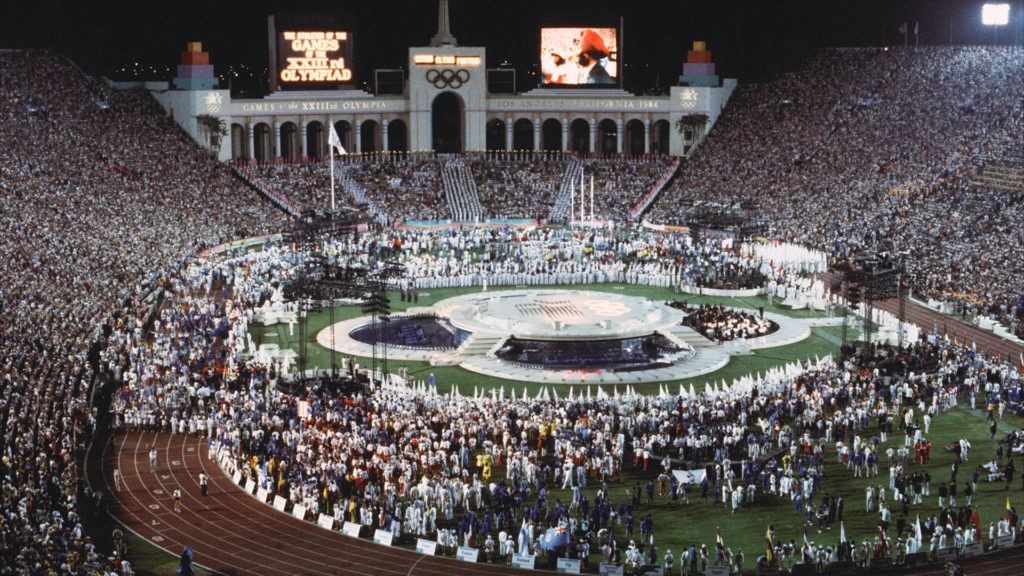The Salt Lake City 2002 Olympic Winter Games set attendance records for a Winter Games, selling more than 1.5 million tickets and attracting a daily average of more than 70,000 fans per day.

The first Olympic Games held without government financing since the first modern Games in 1896, the Los Angeles 1984 Olympic Games became a model for the future with its reliance on existing facilities and corporate sponsors, turning a $223 million profit.
For the first time since 1968, the U.S. topped the medal count, capturing 174 medals, including 83 gold – which was more than the total medal count of second-place West Germany. The Games were boycotted by 14 Eastern European countries in response to the American boycott of the Moscow 1980 Olympic Games. Carl Lewis made the first of his four Olympic appearances and took home four gold medals, while Mary Lou Retton became the first American to win the women’s gymnastics all-around gold medal.

U.S. Olympic & Paralympic Museum offers parking in the adjacent Park Union District lot for $7.50 per-day. Metered parking is also available on Sierra Madre and Vermijo.
Subscribe now to keep up to date on Museum news and events!
Olympic Marks are used under license from the U.S. Olympic & Paralympic Committee. 36 U.S.C. 220506
Website development supported in part by a grant from the Colorado Tourism Office.